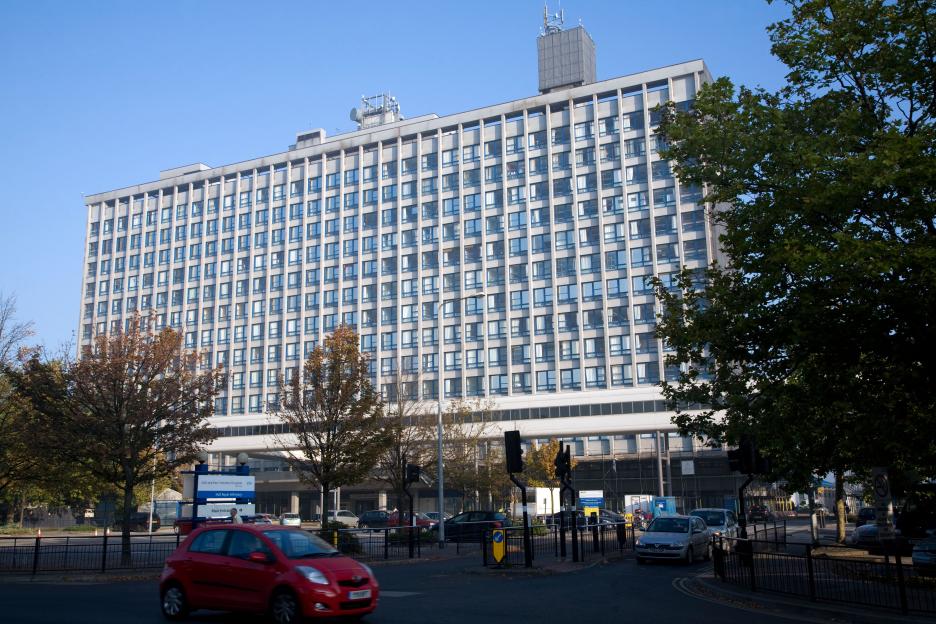THERE is a buzz in the air during the first week of September.
Families have a mix of anticipation, relief and maybe a little bit of anxiety as the new school term looms.
 Dr Zoe Williams helps Sun readers with their health concerns
Dr Zoe Williams helps Sun readers with their health concerns
Whether you are a parent sending your little one off for the first time, or a student heading back with exams on the horizon, this time of year marks a shift.
A GP will see this transition reflected in their consulting room.
There’s an uptick in coughs and colds as kids get back into close contact. Sometimes, a quiet word from a parent worried about their child’s sleep or stress.
So it’s not all uniforms and packing lunches – it’s about looking after our physical and mental health , too.
Think about prioritising sleep, planning and encouraging healthy meals, and keeping an eye on any worries that might be bubbling under the surface.
Don’t forget to encourage hand-washing, the best way to keep back-to-school bugs at bay.
Meanwhile, here’s what readers have asked me this week . . .
Q) MY 14-year-old son spends all night on his phone, tablet or laptop, sleeps all day (missing school) and doesn’t like to socialise with anybody.
 Excessive screen time could be caused by an underlying issue
Excessive screen time could be caused by an underlying issue
He hides when we have visitors. Although good, homemade food is available, he mostly eats fast food .
I’m worried about him.
A) You are certainly not alone as a parent of a teenager with these worries. At 14, some withdrawal, moodiness or irregular habits can be part of adolescence.
But the level you’re describing – avoiding people, staying up all night on screens, skipping school and poor eating – are serious red flags.
It’s not easy to know where to start, and I’m not a parent of a teenager or an expert in this field.
But I can share some communication skills that might open the conversation – and it’s good to let your son know he can talk to you about anything, without judgment.
Try asking open questions rather than advising or telling.
Let him know how you are feeling, then try to listen and understand how he is feeling.
Example: “I’ve noticed you’ve been staying up late and avoiding school, I’m feeling worried about you. Can you tell me how you’re feeling?”
There could be an underlying issue, such as social anxiety, depression , gaming/internet addiction or other emotional struggles.
The earlier you can get some help, the better. It’s also important to ensure the school know any challenges you are facing at home and ask how they can support you.
Many schools have counsellors who can support young people.
There are also good resources from the charity YoungMinds, which offers advice, guides and a dedicated parents’ helpline.
Try The Mix as well, which has support for under-25s via phone (11am–11pm), online chat and up to eight free counselling sessions.
Samaritans, Childline and Papyrus provide round-the-clock emotional support for young people.
If your son ever talks about feeling hopeless or harming himself, or refuses to eat/sleep properly for days, please seek emergency medical/psychiatric help right away.
23 YEARS OF SWEATING
Q) I’M a woman aged 68 and have suffered with excess sweating since starting the menopause aged around 45.
It just pours down my face, neck, back and front. I put a tea towel around my neck and sit in front of a fan all day. I’m on tramadol slow release 150mg and normal tramadol 50mg when needed.
I also take pregabalin 100mg and 50mg. My doctor says it could be all the tablets I take, but it’s always been like this.
They gave me clonidine 25mg and fluoxetine 60mg, but nothing seems to help. My twin hasn’t had any of these problems and I thought it would’ve passed by now.
A) I can see how difficult this has been for you and your frustration that the sweating has persisted for more than 20 years.
It is possibly still due to menopause. For some women, hot flushes and sweating continue well into their 60s or 70s.
Around 10 to 15 per cent of women still have troublesome symptoms decades after menopause.
However, I do think that your doctor is right to also question whether it could be medication side effects.
Tramadol and pregabalin can both cause excessive sweating in some people.
Fluoxetine also has sweating as a common side effect.
So the combination could be making things worse and I’d advise you to ask your doctor for a meds review.
Since tramadol, pregabalin and fluoxetine may all worsen sweating, ask if any could be adjusted, replaced or reduced under supervision, or possibly a referral to a pain clinic to see if there are alternative pain management options.
It is interesting that your twin hasn’t had these problems, but genetics are only part of the picture.
Hormone fluctuations, body weight, medications and nervous system sensitivity can all play a role.
HRT is still an option in many women over 60, provided risks and benefits are carefully reviewed. It remains the most effective treatment for hot flushes and sweats.
If it’s not deemed to be in your best interest, then a referral to a menopause clinic may be the next best step for potential treatments that your GP hasn’t suggested.
I SUFFER SHORT BURSTS OF CHEST PAIN
 Dr Zoe helps a reader who is having pain in their upper chest
Dr Zoe helps a reader who is having pain in their upper chest
Q) I AM having an issue with a slight pain in my upper chest, and then I lose my breath for maybe milliseconds.
It can happen up to four times a day. I have slight asthma and take a powder inhaler, but it hasn’t resolved the issue and is quite frightening when it happens.
A) Sudden pain in the chest sounds scary and understandably worrying. It’s important not to ignore chest pain with shortness of breath episodes, even if brief.
Sometimes asthma can cause chest tightness or a sensation of not getting enough air, even if on an inhaler.
But the very brief, sudden “loss of breath” you describe isn’t typical. So, the next consideration is the heart – if these issues were associated with exertion, this would be high on the likelihood list.
The symptoms don’t sound typical for angina or a heart attack, but we must always have this at the back of our minds as heart attacks do not always present typically, especially in women.
If you notice the pain becoming stronger, lasting more than a few minutes, radiating to your arm/jaw/back or associated with dizziness, fainting, sweating or severe shortness of breath, call emergency services right away.
Some musculoskeletal issues can cause a sharp, “catching” pain that comes on randomly. We see a lot of people show up in A&E with chest pain when it turns out to be costochondritis – inflammation where the ribs join the breastbone.
It tends to be worse when moving or breathing deeply and can often be recreated by pressing over the chest wall at the spot where the inflammation is.
Since this has been happening repeatedly and hasn’t improved, it’s worth seeing your GP.
They may want to check your heart rhythm, lungs and possibly order tests.
For now, keep a diary of when it happens (time, activity, triggers, food, stress) and whether the inhaler helps.
DIAGNOSING DEMENTIA
THE early signs of Alzheimer’s could be detected years before a diagnosis with a new cheap, portable three-minute test.
The head device uses a method called , known as “Fastball” could even be used in a patient’s home and works by showing them a rapid series of images while sensors on their scalp record their brain’s response.
The study included around 100 people, half of whom had Mild Cognitive Impairment, a form of memory loss that can be a precursor to Alzheimer’s.
University of Bath and Bristol researchers found that people with MCI showed significantly reduced responses to the test.
One year later, the Fastball test “showed moderate to good test-retest reliability”.
Dr George Stothart, who led the study, said: “We’re missing the first ten to 20 years of Alzheimer’s with current diagnostic tools. Fastball offers a way to change that – detecting memory decline far earlier and more objectively.”
There are almost a million people with dementia in the UK, a third of whom are estimated to be undiagnosed.
Dr Julia Dudley, head of research at Alzheimer’s Research UK, said: “This study, in a small group of people, suggests that it can be used to measure mild memory impairment, which can be an early sign of disease.
“However, as participants were only followed up one year later, we don’t know if those people will definitely go on to develop dementia.”
STROKE BREAKTHROUGH
 Stroke recovery rates could be tripled thanks to AI brain scans
Stroke recovery rates could be tripled thanks to AI brain scans
AI brain scans on the NHS could triple stroke recovery rates by diagnosing patients over an hour faster than human doctors.
The “revolutionary” tech is being used in every stroke unit across the health service to help tens of thousands of patients after a successful pilot.
It uses artificial intelligence software to read suspected stroke patients’ CT brain scans and compare them to a database of previous patients.
This means the exact type of stroke and its location and severity can be judged much quicker than it could by the human eye.
The faster doctors get an exact diagnosis, the sooner they can start treatment to reduce the risks of long-lasting disability or brain damage.
Study results last year showed use of the AI scan boosted the proportion of patients who made a full recovery from 16 per cent to 48 per cent.
More than 110,000 Brits have strokes each year and they are caused by blockages in the blood vessels that supply oxygen-filled blood to the brain.
When oxygen is cut off, parts of the brain get starved of energy and die, causing nerve damage that can be fatal.
Many survivors suffer physical and mental health issues for years.
David Hargroves, NHS consultant and stroke chief at NHS England , said: “This is revolutionising how we help people affected by a stroke.”







